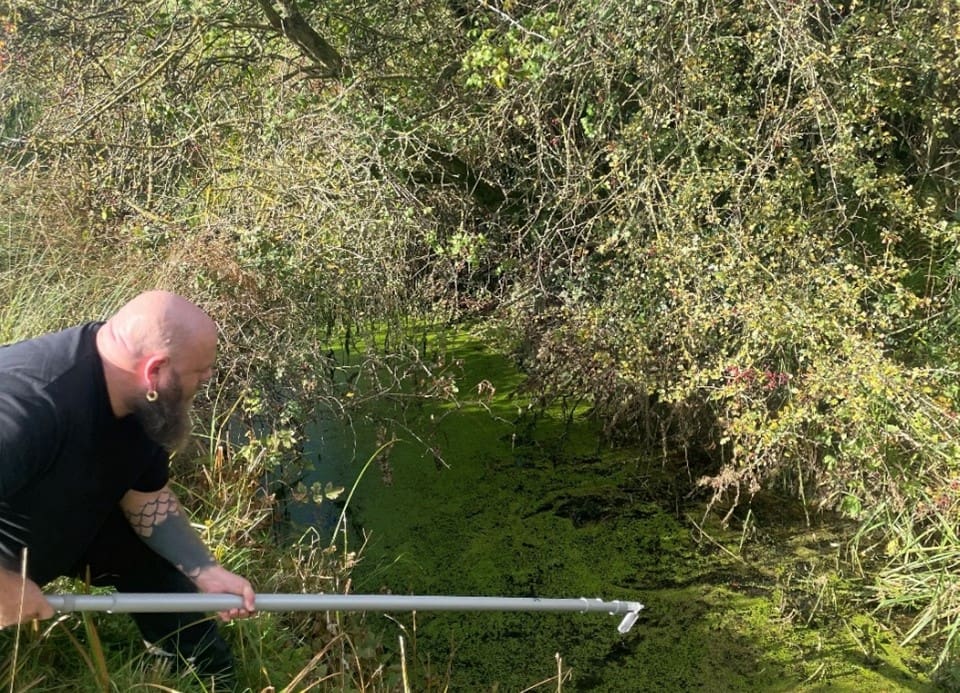Essential Pre-Emptive Ecology for Planners & Developers: Understanding the Value of Preliminary Ecological Appraisals

What is a Preliminary Ecological Appraisal?
A Preliminary Ecological Appraisal (PEA) is defined by the Chartered Institute of Ecology and Environmental Management (CIEEM) as a rapid assessment of the ecological features present, or potentially present, within a site and its surrounding area, in relation to a specific project or proposed development.
While a site may initially appear suitable for development, unforeseen ecological constraints can emerge during the planning process. These discoveries often cause costly delays and complications for planners and developers.
At ORS, our ecological experts apply technical insights to identify and address ecological risks early in the project lifecycle. That’s why we see a PEA as an essential first step in assessing the feasibility of a proposed development. In many cases, a Preliminary Ecological Appraisal Report (PEAR) follows as a useful baseline document for ongoing ecological considerations.
Why Choose ORS for Preliminary Ecological Appraisals?
Our team of experienced Ecological Consultants specialise in identifying potential ecological risks before they become obstacles. Whether you’re working in a rural or urban setting, a PEA provides valuable insights into ecological constraints and opportunities for biodiversity enhancement.
At ORS, our approach is guided by a client-first philosophy. We align our assessments with the priorities and budgets of planners and developers, providing practical and actionable recommendations tailored to each site.
Key Benefits of a Preliminary Ecological Appraisal
Avoiding Project Delays
Unexpected ecological findings are a major cause of project delays. These might include:
- The presence of sensitive habitats listed under Annex I of the EU Habitats Directive (92/43/EEC)
- Protected species requiring varying levels of protection under Annexes II–V of the Directive
Discovering these constraints late in the process can lead to:
- Licence application procedures (derogation licences)
- Suspension of works due to ecological concerns
- Risks of non-compliance with protected site designations
A PEA mitigates these risks by enabling:
- Early identification of ecological constraints
- Timely and cost-effective mitigation planning
- Informed design and project management decisions
This proactive approach reduces the risk of costly disruptions, supports planning applications, and strengthens credibility with both regulators and local communities.
Streamlining the Planning Approval Process
A thorough PEA helps developers navigate the planning process with fewer surprises and greater efficiency. It reduces the risk of unexpected ecological issues arising during the Request for Information (RFI) stage by:
- Providing an early, detailed assessment of the site’s ecological features
- Equipping developers with the knowledge to make informed planning decisions
- Minimising uncertainty and speeding up the RFI response process
- Reducing additional reporting requests from planning authorities
Without a PEA, avoidable issues can arise such as:
- Failing to identify seasonal nesting sites for protected bird species
- Overlooking a sensitive downstream wetland
- Missing bat roost assessments during early design stages
Why Developers Should Prioritise a PEA
Late-stage ecological findings can significantly impact project timelines, budgets, and reputations. A Preliminary Ecological Appraisal helps identify these risks early, enabling developers to manage them effectively from the outset.
By integrating a PEA into the early planning stages, developers can:
- Ensure regulatory compliance
- Avoid unnecessary legal or logistical complications
- Protect their project timelines and financial resources
- Build trust with stakeholders and planning authorities
Get Expert Ecological Advice, From the Start
If you’re planning a development and want to manage ecological risks proactively, ORS can help. Contact our ecology team today to arrange a Preliminary Ecological Appraisal for your development, email info@ors.ie or call +353 1 524 2060.
Learn more about our ecological services at ors.ie/services/ecology/
